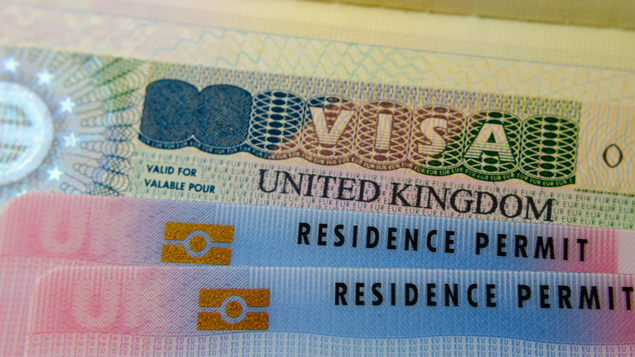- I am an EU / EEA national. Can I claim benefits?
-
- The situation is complicated for EEA nationals (nationals of EU member states, as well as Norway, Iceland, Liechtenstein and, for most purposes, Switzerland) and their family members. Even without permanent residence, they have access to benefits if they have a right to reside under EU law. This is a complicated concept, but it covers:
- EEA nationals who are employed or self-employed (as long as the work is “genuine and effective”),
- EEA nationals who are registered jobseekers (although this only gives access to JSA, Child Benefit and Child Tax Credit),
- EEA nationals who are “self-sufficient” (which includes a requirement to buy comprehensive health insurance cover in the UK),
- “Family members” of EEA nationals in one of the above categories (this includes spouses / civil partners, children / grandchildren who are under 21 or still dependent on the EEA national, and parents / grandparents who are dependent on the EEA national).
- It is also possible for EEA nationals who were previously employed to retain their worker status even after stopping work. This applies if they:
- leave work due to pregnancy or childbirth (they can retain worker status for up to a year),
- leave work because of “temporary incapacity” due to illness or disability,
- register as a jobseeker soon after leaving work (the amount of time they can retain worker status depends on the length of time worked),
- start vocational training soon after leaving work (if they left voluntarily, the training must be relevant to their previous employment).
- EEA nationals who were previously self-employed can retain their worker status due to pregnancy / childbirth or temporary incapacity only.
- Note that EEA nationals and family members do not need a right to reside to access Personal Independence Payments (or DLA), Carer’s Allowance, Working Tax Credits or contribution-based benefits.
- Also note that that there are additional restrictions on Croatian nationals until the end of June 2018
- If you’re an EEA national who is a jobseeker in the UK (or their family member), you will not be entitled to Universal Credit (UC) unless you also have a different right to reside as any of the following:
- a worker
- self-employed
- a former worker
- a student
- self-sufficient
- a person who has a permanent right to reside
- I am not an EEA national. Can I claim benefits?
-
- Non-EEA nationals with limited leave to enter the UK (such as visitors, spouses and civil partners) have no recourse to public funds. This includes most benefits, although not contribution-based ones (the full list is here). If this applies to you, make sure to get advice before attempting to claim public funds, as the consequences of doing so when not entitled can be serious.
Darlingtons
Regional law firm with offices in Edgware and Central London. Specialist lawyers in commercial, property, conveyancing, litigation, employment, family law.
They also help by seeing people at our pro bono immigration sessions: ring for an appointment.
Monday 9am–5:30pm
Tuesday 9am–5:30pm
Wednesday 9am–5:30pm
Thursday 9am–5:30pm
Friday9am–5:30pm
View on Map
Plan Journey on TFL
Ealing Law centre
They aim to provide access to the legal system for those who are encountering obstacles to finding the help that they need.
Specialise in Housing and Immigration advice for local people.
View on Map
Plan Journey on TFL
- What is immigration control?
-
- Immigration control is about how and why people from countries outside the UK are allowed to come to the UK and how long they can stay. It is also about what they are allowed to do when they are in the UK, for example, whether they can work, whether relatives can come to the UK to join them afterwards, and whether they can use the National Health Service or claim benefits.
- The rules about immigration control (which are law) are complicated by the fact that they overlap with nationality law – that is, the law about who is or is not a British citizen, and the rights of the different types of British citizen.
- The system of immigration control in the UK splits people into two broad categories: those who have ‘right of abode’ in the UK and who can live, work and move in and out of the country as they wish, and those who require permission in order to enter and remain here.
- There are certain groups of people who do not fit easily into these two categories and who do not have to get leave to ‘enter and remain’ even though they do not have ‘right of abode’. Included in this group are people who can benefit from European rights of free movement.
- Where people do need leave to enter the UK, immigration rules set out various ways in which it can be granted. Some examples of different immigration categories are: ‘visitor’, ‘spouse’, ‘au pair’ and ‘student’. In each category, the rules indicate different requirements that must be satisfied before someone will be granted leave to come and stay. For example, students must show that they will follow a full time course of study. The rules require that most of the categories of people coming to the UK will be able to support themselves without relying on public funds.
- The immigration rules also specify how long leave to remain in the UK should be granted for. Leave to remain can be either ‘limited’ or ‘indefinite.’ Limited leave is granted to people who are coming to the UK for ‘temporary’ reasons, for example, as students. Other people applying for leave to remain may be eligible for ‘indefinite’ leave, with the possibility of being able to apply for UK citizenship.
- People in most ‘temporary’ categories, such as visitors, will also need to show that they intend to leave the country when the purpose of their stay is over.
- People who require leave to enter the UK will usually need to get ‘entry clearance’ to show that they are entitled to enter the UK under the immigration rules. There are detailed rules about how to qualify for entry clearance within each category of applicant coming to the UK. Some groups, such as refugees and asylum seekers do not require entry clearance, but most do.
- In the rest of this information, you can find a list of some of the immigration problems which you may need advice on, as well as a list of organisations which may be able to help. You should bear in mind that immigration laws are strictly enforced in the UK and the consequences of misunderstanding your right to be here can be very serious. It can include the risk of deportation. It is therefore essential to consult a specialist adviser if you are unsure about your position, or the position of family and friends.
- Can I marry a partner from overseas ?
-
- If your fiancé or proposed civil partner is not from the EEA and they want to come to the UK to get married to you and live with you permanently in the UK, they will first need to get a fiancé visa, known as entry clearance. You will both have to prove that you have a genuine relationship. You yourself have to be British or have settled status in the UK, also known as indefinite leave to remain.
- To get a fiancé (e) or proposed civil partner visa, you will also have to prove that:
- you and your partner are 18 or over at the date of your application
- your partner must not be related to you in a way that means you could not marry under UK law
- you and your partner must have met in person
- your relationship must be genuine and subsisting;
- you must be seeking entry to the UK to allow your marriage or civil partnership to take place
- any previous relationship must have permanently broken down (this does not apply to certain polygamous relationships)
- you and your partner must intend to live together permanently in the UK
- you must meet the financial requirements, and
- you must meet the English language requirement.
- Further information is on the UKBA website at www.bia.homeoffice.gov.uk .
- Once your fiancé (e) is in the UK, they will be given 6 months to stay here during which you must get married or have a civil partnership ceremony. You will need to give notice to marry or register your civil partnership at a designated register office.
- Once married, your new spouse or civil partner must apply on a UK Border Agency form for permission to remain in the UK as a spouse or civil partner. There are strict requirements that your partner will have to meet to satisfy the immigration authorities that the marriage is genuine and that they should be allowed to stay in the UK.
- If you applied to stay in the UK as a spouse or civil partner before 9 July 2012, then you can apply to stay in the UK permanently once you have been here for two years. If you applied on or after 9 July 2012, you have to have been here for five years before you can apply for stay here permanently. This is known as applying for settled status. In all cases, you’ll have to continue to prove during that time that you met the rules for spouses and civil partners. Further information is on the UKBA website at www.ukba.homeoffice.gov.uk .
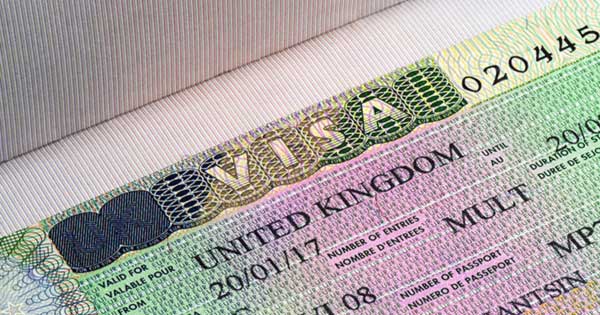
- How can I deal with my Council Tax arrears?
-
- Council tax arrears should be dealt with promptly. If you don’t come to an arrangement to pay, your council can take enforcement action against you. This could include, for example:
- getting an amount deducted from wages or certain benefits;
- sending bailiffs;
- applying for a legal charge on any property that you own; or
- making you bankrupt.
- If all else fails, your council can ask the magistrates’ court to consider sending you to prison for non-payment.
Checking the bill –
- You could take the following actions to check the amount you owe is correct and possibly reduce the arrears:
- Claim any council tax benefit which you are entitled to. You may be able to get this backdated.
- Claim any exemptions, reductions or discounts which you are entitled to. For example, if you are the only adult in your property, you are normally entitled to a 25% reduction on your bill.
Dealing with bailiffs –
- If your council has passed the debt on to bailiffs then you may still be able to negotiate with the council. They may agree to stop the bailiffs’ action and accept a repayment plan. If they do, you will avoid having to pay bailiffs’ fees.
- You may also be able to negotiate a repayment plan with the bailiffs themselves. However, bailiffs will normally want repayment over quite a short period. Private bailiffs can be very difficult to deal with and it is usually best not to let them into your home. They are not allowed to force entry unless you have let them in on a previous visit.
- If you are having problems negotiating an affordable payment arrangement with your council or bailiffs, you could ask to see any Code of Practice or Recovery Policy with which they should comply.
Going to court –
- As a last resort, your council can ask the magistrates’ court to consider sending you to prison for non-payment. The court may decide instead to either
- set a rate of repayment;
- write off part or all of the debt, depending on your circumstances;
- adjourn; or
- make no order.
- If you are required to attend a committal hearing we recommend you seek specialist advice.
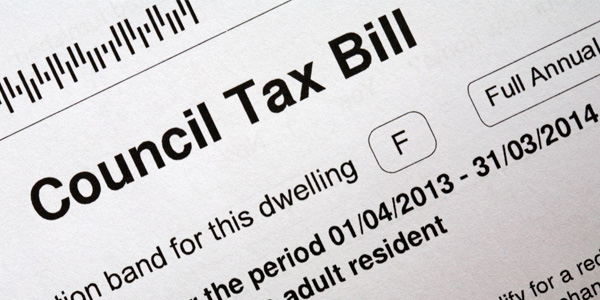
- How can I claim support when out of work?
-
- If you have come to the UK from abroad and want to claim certain benefits, you must also take the habitual residence test (HRT). To pass the test you must prove:
- you have a legal right to live in the UK and claim these benefits. This is called the right to reside; and
- you intend to settle in the UK, Isle of Man, Channel Islands or Ireland and make it your home for the time being. This is known as habitual residence.
- The test applies to the following benefits:
- Income Support
- Income-based Jobseeker’s Allowance
- Income-related Employment and Support Allowance
- Pension Credit
- Housing Benefit
- Council Tax Benefit
- access to local authority housing.
- To claim Child Tax Credits and Child Benefit you have to prove you have the right to reside, but you don’t have to prove you are habitually resident. Seek advice if you want to claim these benefits.
- What rights do I have as a British citizen?
-
- You have an automatic right to reside in the UK, as well as in Ireland, Isle of Man and Channel Islands. This is known as the common travel area and you will also be considered to be habitually resident in the UK if you’ve been living in any of these places.
- However, if you have recently returned to the UK after a period living outside of the common travel area, you will still have to show that you intend to settle in the UK to pass the HRT.
- I am an EEA national; do I have to take any tests?
-
- Some EEA nationals don’t have to take the habitual residence test at all. Others may have the right to reside but must still show their intention to settle in the UK. Your rights depend on your status. You may not have to take the test if you are:
- a worker,
- self-employed
- If you are working in the UK you don’t have to take the HRT. However you’ll need to prove that the job you’re doing is genuine and effective and not marginal or ancillary.
- If you are self-employed in the UK, you don’t have to take the HRT. However, you must be genuinely self-employed. This includes setting yourself up as self-employed. For example, by advertising your services, doing accounts, registering with HM Revenue and Customs (HMRC) and advertising for work. There is no minimum period of time in which you must have been self-employed. If you are self-employed you will keep that status as long as you are self-employed and intending to return to work.
- If you are on maternity or sick leave you’ll keep your worker status for as long as you are employed.
- Since 1 May 2011, if you’re an A8 national you have exactly the same rights to claim benefits as other EEA nationals.
However, any work you did in the UK before May 2011 must have been registered with the Workers Registration Scheme, unless you were exempt from registering. Exempt means you didn’t have to register.
What rights do I have as an Irish citizen?
- You automatically have a right to reside in the UK as part of the common travel area. If you were habitually resident in Ireland or any of the places in the common travel area before you came to the UK, you will automatically pass the HRT.
- However, if you come to the UK from a country outside the common travel area, you will have to prove you’re habitually resident to pass the test.
- Can I be naturalised as a British citizen?
-
There are seven requirements you need to meet before you apply:
- You must be aged 18 or over.
- You must be of sound mind.
- You must intend to continue living in the UK, or to continue in Crown service, the service of an international organisation of which the UK is a member, or the service of a company or association established in the UK.
- You must be able to communicate in English, Welsh or Scottish Gaelic to an acceptable degree.
- You must have sufficient knowledge of life in the UK.
- You must be of good character.
- You must meet the residential requirements.
Residential requirements –
- To demonstrate the residential requirements for naturalisation, you must have:
- been resident in the UK for at least five years (this is known as the residential qualifying period);
- been present in the UK five years before the date of your application;
- not spent more than 450 days outside the UK during the five-year period;
- not spent more than 90 days outside the UK in the last 12 months of the five-year period;
- not been in breach of the Immigration Rules at any stage during the five-year period.
Knowledge of Language and Life –
- You can demonstrate your knowledge of language and life in the UK in three ways:
- If you speak English, Welsh or Scottish Gaelic to a reasonable standard, you will only need to pass the “Life in the UK” test.
- If you do not have sufficient knowledge of English, Welsh or Scottish Gaelic, you will need to take and pass the “English for Speakers of Other Languages” (ESOL) course in English and citizenship.
- If you passed the “Life in the UK” test or completed an ESOL course to meet the knowledge of language and life requirement when you applied for settlement, you will not need to show that you meet this requirement again. Simply tick the appropriate box in section 1.22 of the application form.
- You cannot be exempted from this requirement because you have lived in the UK for a long time, have certain qualifications, are illiterate or are from an English-speaking country. The requirement to demonstrate knowledge of life in the UK is specified in law, and these are not grounds for exemption.
- You may be exempted from the requirement if you are over the age of 65, or have a serious physical or mental condition that would prevent you from meeting this requirement for the foreseeable future.
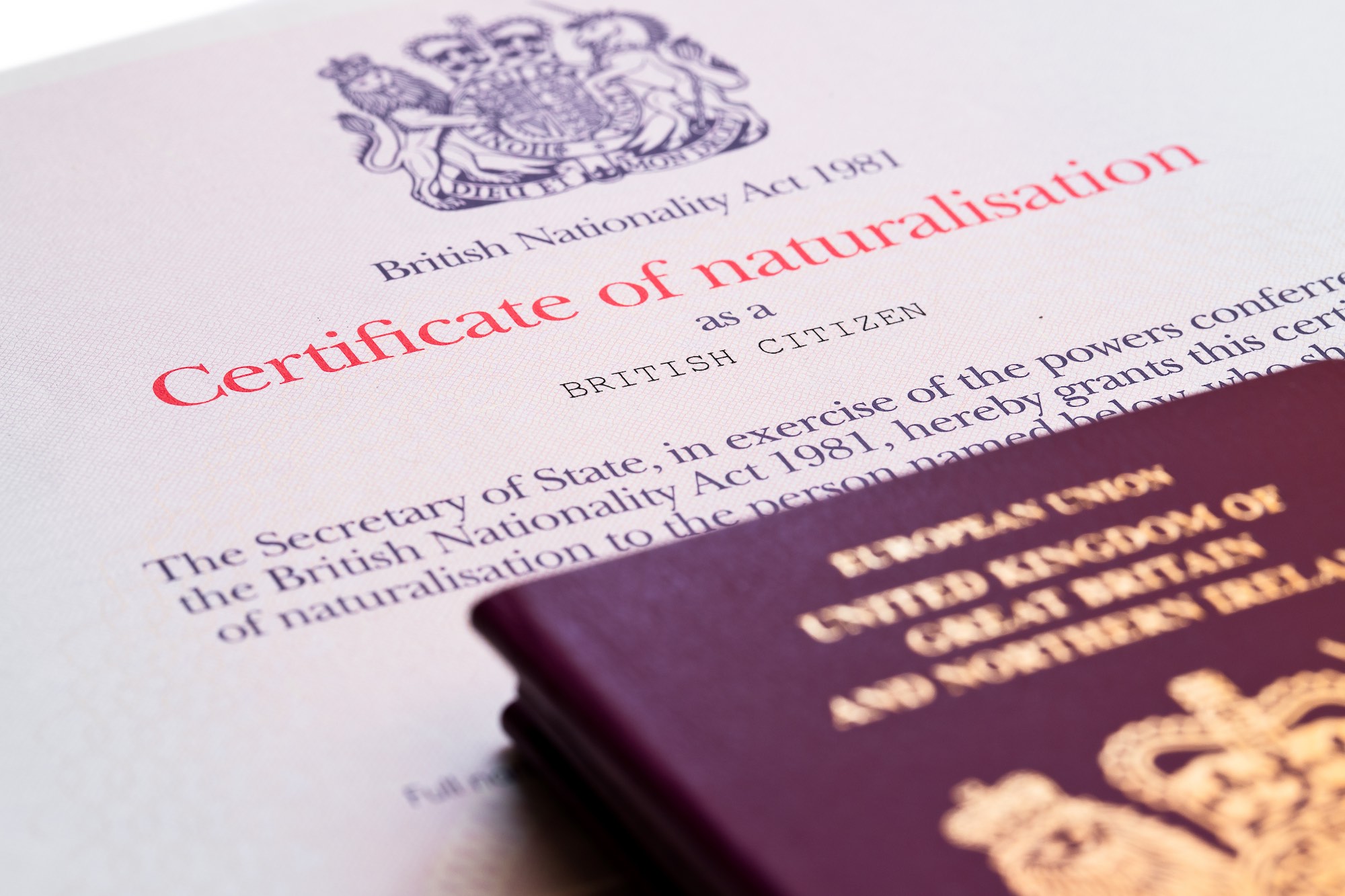
Home Office’s Immigration and Nationality Directorate
This website provides information and explains the process for coming to live and work in the UK. You can download application forms and information on the following: Permission to work in the UK, Permission to stay in the UK, Citizenship and Asylum and Refuge.
Sutovic & Hartigan Solicitors
Open Monday to Friday 9:00am to 6:00pm
Telephone Advice: Monday to Friday 9:00am to 6:00pm
Appointments: Monday to Friday 9:00am to 6:00pm
Drop in: Monday to Friday 9:00am to 6:00pm
Home visits: Available
View on Map
Plan Journey on TFL
Southall Day Centre
Our advice and casework services focus on welfare benefits but also include other areas of help including Locata bidding.
We also host weekly housing benefit surgeries by Ealing Council (Appointment only), monthly DWP appointment only surgery and immigration and nationality advice (LAWTA Immigration Law Service).
The Centre also organises a range of health, social and welfare activities particularly aimed at combating social exclusion and isolation amongst older people, people with disabilities, women, the unemployed or people on low incomes.
We also host accredited training courses in ESOL and UK On-line IT courses.
Open Monday to Friday 9:00am to 4:30pm
Telephone Advice: Monday to Friday 9:00am to 4:30pm
Appointments: Monday to Friday 9:30am to 12:30pm
Drop in: Monday to Friday 9:30am to 12:30pm
Home Visits: Available via request
View on Map
Plan Journey on TFL
Somali Women’s Refugee Centre
We provide free advice in Immigration, Welfare Benefits and Housing. We have a drop in service and an appointment system.
Open Monday to Thursday 9:00am to 4:00pm
Drop in: Monday to Thursday 9:00am
View on Map
Plan Journey on TFL
The Sethi Partnership Solicitors
The Sethi Partnership Solicitors, established in May 1994, has a dynamic team of highly experienced solicitors based in West London, who can provide individual clients and businesses with a full range of legal services delivered in an understanding, professional and cost effective manner, always having the client’s best interests as paramount. We can advise on a wide range of matters in all areas of the law.
Open Monday to Friday 9:00am to 5:30pm
Appointments: Monday to Friday 9:00am to 5:30pm
Drop in: Monday to Friday 9:00am to 5:30pm
Home visits: Available
View on Map
Plan Journey on TFL
South Acton Children’s Community Centre
As well as offering childcare from 6 months to 5 years, we have a family support team that can deal with all family related issues and offer advocacy to parents when dealing with local services.
Open Monday to Friday 9:00am to 4:00pm
Telephone Advice: Monday to Friday 9:00am to 4:00pm
Appointments: (Preferred) Monday to Thursday 9:00am to 12:00pm
Drop in: Monday to Thursday 9:00am to 12:00pm
Home Visits: Available to registered families
View on Map
Plan Journey on TFL
Somali Family Learning & Regeneration Projects
We provide basic advice, information and general help and empower disadvantaged refugees families and their children with free study and support sessions at flexible times. Learning sessions for families, IT, ESOL and free weekend study support for children.
Open Monday to Friday 10:00am to 4:00pm
Appointments: Monday to Thursday 11:00am to 4:00pm
Drop in: Monday to Thursday 11:00am
Home Visits: Available via request
View on Map
Plan Journey on TFL
Southall Rights
We provide advice and assistance in legal matters.
Open Monday to Friday 10:00am to 1:00pm and 2:00pm to 6:00pm
Drop in: General advice Monday, Wednesday, Thursday, Friday 5:00pm £3
Immigration advice Friday 5:00pm £10
View on Map
Plan Journey on TFL
Rozijo Immigration Consultant
We are regulated at Level 1 by OISC to give advice and assistance in UK Immigration and Nationality matters.
Open Monday to Friday 10:00am to 5:00pm
Appointments: Monday to Friday 10:00am to 5:00pm
Drop in: Monday to Friday 10:00am to 5:00pm
View on Map
Plan Journey on TFL
Polpitya & Co
Advice and assistance on legal issues. Court attendance and representations. Police Station attendance and representations.
Open Monday to Friday 9:30am to 5:30pm
Telephone Advice: Monday to Friday 9:30am to 5:30pm
Appointments: Monday to Friday 9:30am to 5:30pm
Drop in: Monday to Friday 9:30am to 5:30pm
Home Visits: Available
View on Map
Plan Journey on TFL
Palis Solicitors
Specialist legal help in family, housing and immigration work.
Open Monday to Friday 9:30am to 6:00pm
Appointments: Monday to Friday 9:30am to 6:00pm
Drop in: Monday to Friday 9:30am to 6:00pm
View on Map
Plan Journey on TFL
MAAS (Migrant Advisory and Advocacy Service)
Providing advice and assistance to migrants and refugees (including asylum seekers) on immigration, housing, welfare benefits, debt and employment matters.
Open Monday to Friday 9:00am to 6:00pm and Saturday 9:00am to 1:00pm
Telephone Advice: Monday to Friday 10:00am to 12:00pm and 2:00pm to 4:00pm
Appointments: Monday to Friday 9:00am to 6:00pm
Drop in: Monday to Friday 5:00pm and Saturday 11:30am
View on Map
Plan Journey on TFL
Law Partnership Solicitors
All aspects of Civil Litigation in the High Court and County Court. Employment Tribunal Claims. Family Law cases in the High Court, County Court (The Principal Registry of the Family Division) and Magistrates Court.
Open Monday to Friday 10:00am to 4:00pm
Appointments: Monday to Friday 10:00am to 4:00pm
Home visits: Available via request
View on Map
Plan Journey on TFL
East European Advice Centre
EEAC is an independent charity offering information and advice to people from Eastern Europe living or working in Greater London.
Open Monday to Friday 9:00am to 4:30pm
Telephone Advice: Monday to Friday 2:00pm to 3:00pm
Drop in: Monday to Friday 9:00am to 12pm (first come first served)
Appointments: Every day 10:00am to 5:00pm
View on Map
Plan Journey on TFL
Iranian Association
The Iranian Association provides advice and organises activities and workshops for clients.
Open Monday to Friday 10:00am to 5:30pm
Telephone Advice: Monday to Friday 10:00am to 5:30pm
Appointments: (preferred) Monday to Friday 10:00am to 5:30pm
Drop in: Monday to Friday 10:00am to 5:30pm
View on Map
Plan Journey on TFL
Iraqi Association
We are a registered charity and provide free, confidential and impartial services to all Iraqi and Arab communities in London. We aim to promote the well-being of the Iraqi community, encourage mutual understanding and work to bridge the gap between British and Iraqi cultures and to ease the integration process.
We offer advice, guidance and advocacy on the following issues: Immigration (Asylum and Nationality), Welfare Benefits, Housing, Health, Young Refugees and Asylum Seekers. 2 Elderly Day Centres, ‘Al-Muntada’ Newspaper, Social and Cultural Activities.
Open Monday to Friday 10:00am to 5:30pm
Telephone Advice: Monday to Friday 10:00am to 5:30pm
Appointments: Monday to Friday 10:00am to 5:30pm
Drop in: Monday, Tuesday, Wednesday and Friday 10:00am to 5:30pm
View on Map
Plan Journey on TFL
Dehk Bhal Women & Girls Support Group
Dekh Bhal provides a range of social and cultural activities for women and girls (and boys up to age 12). We also hold “Chit Chat” a chance for women to discuss family matters, counselling and advice on a range of issues such as arranged marriages, family problems, immigration etc. We offer assistance to women to help fill in forms for social services, benefits etc. We offer support around bereavement and to women who suffer violence either by their partners or by their children. We will contact hospitals or doctors where women are not getting a proper service. We also run cultural classes, cultural and religious functions, monthly get-togethers, Urdu classes and an after-school learning club offering maths, English and sciences.
View on Map
Plan Journey on TFL
Brent Citizen Advice Bureau
Provision of advice and information to the general public.
Open Monday, Wednesday, Thursday and Friday 9:30am to 4:00pm
Tueday 1 pm – 5pm plus late opening for workers 5pm – 7pm
Due to very high demand, we are currently running a first-come, first-served ticket system. There is usually a long queue and they do not always see everybody.
Telephone Advice: Monday to Friday 10 to 4pm
Outreach projects
View on Map
Plan Journey on TFL
Ashton Page Solicitors
We are a firm of Solicitors providing legal advice and assistance to members of the public. We are able to provide Legal Aid (to those who qualify) on family matters only. We deal and specialise in various areas of law where we have been accredited with the Law Society’s Conveyancing Quality Scheme and their Family Law Panel accreditation to reflect the high standard of service we provide.
Open Monday to Friday 9:00am to 5:30pm
Telephone Advice: Monday to Friday 9:00am to 5:30pm
Appointments: Monday to Friday 9:00am to 5:30pm
Home Visits: Available via request
View on Map
Plan Journey on TFL
Arden Solicitors
We provide a high level of service to individuals.
Open Monday to Friday 10:00am to 5:30pm
Appointments: Monday to Friday 10:00am to 4:00pm
Drop in: Monday to Friday 10:00am to 4:00pm
Home Visits: Available via request
View on Map
Plan Journey on TFL
Asghar & Co
Solicitors’ firm offering legal help to the public.
Open Monday to Friday 9:00am to 6:00pm
Appointments: Monday to Friday 9:00am to 6:00pm
Home Visits: Dependant on circumstances
View on Map
Plan Journey on TFL
Arora Lodhi Heath Solicitors
Solicitors’ firm offering legal advice and assistance to the public.
Open Monday to Friday 9:30am to 6:00pm
Appointments: Monday to Friday 9:30am to 6:00pm
Drop in: Monday to Friday 9:30am to 6:00pm
Home Visits: Available via request
View on Map
Plan Journey on TFL
UK Border Agency
This website provides information and explains the process for coming to live and work in the UK. You can download application forms and information on the following: Permission to work in the UK, Permission to stay in the UK, Citizenship and Asylum and Refuge.
- Can I get married or register a civil partnership in the UK?
-
- For non EEA nationals, you can visit the UK to get married or register a civil partnership as long as you intend to leave the UK within 6 months. If you are subject to immigration control, you may need to apply for a certificate of approval from the Home Office. This is not required for marriage in an Anglican church in the UK.
- Can I be naturalised as a British citizen?
-
- If you are over 18, have lived in the UK for the last 5 years (or 3 if married to or in a civil partnership with a British citizen), you can apply for naturalisation. Use form AN which can be downloaded from www.bia.homeoffice.gov.uk. Please note that ‘earned citizenship’ will be introduced in July 2011.

- How do I come to the UK for private medical treatment?
-
- You will need to fulfil the requirements for a visitor’s visa, have made arrangements for the medical treatment which must be for a specified limited time period and have enough money to pay for the treatment and your stay in the UK. If you have a communicable disease, you will need to show that there is no danger to public health.

- Can I apply for settlement in the UK?
-
- You will need to have lived in the UK for 2 or, in some instances, 5 years and will need to show knowledge of language and life in the UK.
- Can I claim asylum?
-
- If you can show that you have a well-founded fear of persecution because of your race, religion, nationality, political opinion or membership of a particular social group, you can make a claim for asylum.

- Can my elderly mother come and live with me in the UK?
-
- If you are a British citizen, or settled here, and can show that your mother is mainly dependent on your financial support, your mother can apply to join your household.
- You will need to show that you can maintain and accommodate your mother without needing public funds and that there are no other close relatives in your mother’s country who could support her.
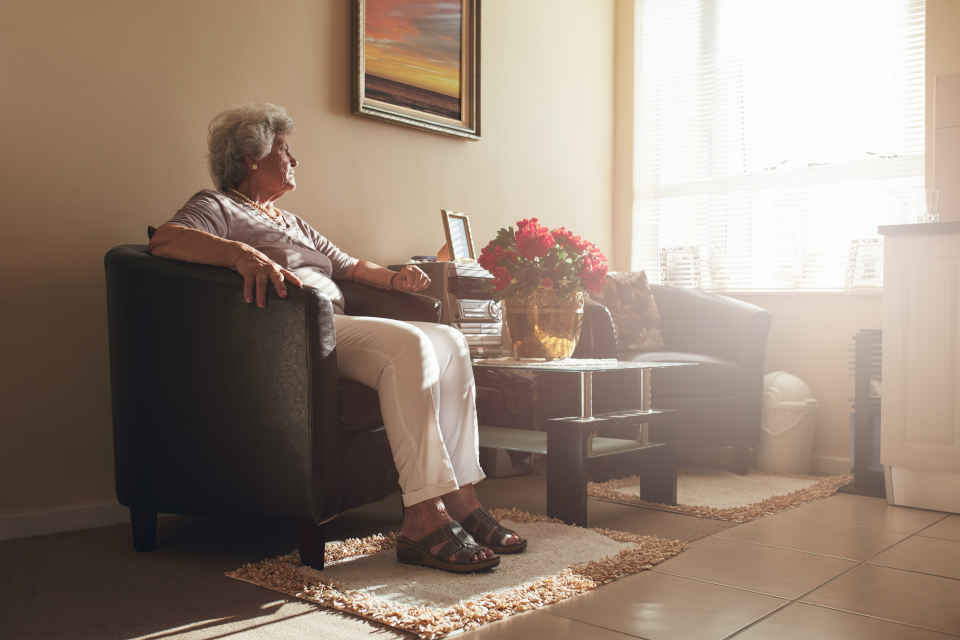
- Can I come to work in the UK?
-
- Most EEA nationals are free to enter and work in the UK. People from those countries that have more recently joined the European Union are required to register. Other migrants need to pass a points-based assessment.

- What do I need to do to obtain a visitor’s visa?
-
- EEA nationals do not require a visa.
- For non EEA nationals, if you are 18 or over and you want to visit the UK for a maximum of 6 months, you can apply for a visitor’s visa. You must intend to leave the UK at the end of the period and have enough money for return travel and to support yourself whilst in the UK.
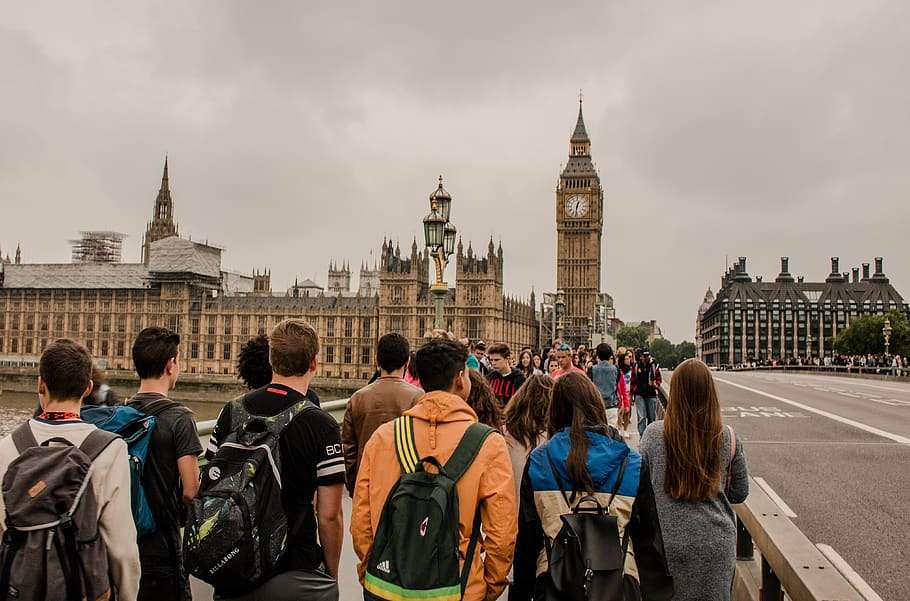
- I have a visitor’s visa. Can I change to a student visa?
-
- You can not usually change your status without leaving the UK and applying for a different form of visa in the relevant category. You can contact the immigration enquiry bureau to explain the reason you require an extension or change to your current visa, but permission to do so is extremely difficult to obtain.
